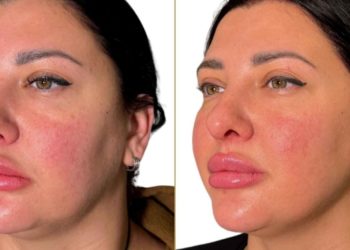Nesas Hemp has released new data on gut health, shedding light on a critical aspect of overall wellness. The latest research offers a fresh perspective on how gut health affects not only digestive functions but also broader physiological processes. With the growing focus on holistic health, the findings highlight the importance of understanding the gut’s role in maintaining a balanced and healthy lifestyle.
The new research focuses on the gut microbiome, the collection of trillions of microorganisms that reside in the human digestive tract. The study’s findings emphasize the link between the microbiome and various health outcomes, including immune system performance, mental well-being, and metabolic health. Emerging data suggests that gut health has a more significant impact on overall health than previously understood.
A notable finding from the research is the estimated prevalence of gut-related issues in the general population. According to the data, it is estimated that a large percentage of individuals experience some form of digestive discomfort or imbalance in the gut microbiome. These issues range from common conditions like bloating and indigestion to more chronic concerns such as irritable bowel syndrome (IBS) and inflammatory bowel disease (IBD). The research highlights that addressing gut health could potentially improve the quality of life for a substantial portion of the population.
The study also delves into the effects of modern lifestyles and diets on gut health. With the increased consumption of processed foods, antibiotics, and environmental stressors, it is estimated that gut microbiomes are becoming less diverse, which can negatively affect digestion, immunity, and overall wellness. The research suggests that adopting dietary and lifestyle changes, such as consuming more fiber-rich foods and probiotics, could help restore balance to the gut microbiome and improve health outcomes.
Gut health plays a critical role in regulating the body’s immune system, and the research highlights this connection. It is estimated that up to 70% of the immune system resides in the gut, meaning that a healthy microbiome is essential for a well-functioning immune response. The data shows that a well-balanced microbiome can help the body better defend against pathogens and reduce inflammation, which is a root cause of many chronic diseases.
The research also points out the impact of an imbalanced microbiome on immune function. Individuals with poor gut health are more likely to experience frequent infections and may have an increased risk of developing autoimmune disorders. This underscores the importance of focusing on gut health to maintain a resilient immune system.
In addition to its role in immune function, gut health has a significant influence on mental health, as highlighted in the research. The gut-brain axis, a bidirectional communication pathway between the gut and the brain, plays a critical role in regulating mood and cognitive function. The data shows that the gut produces a large percentage of the body’s serotonin, a neurotransmitter that regulates mood and feelings of well-being.
The research suggests that disruptions in the gut microbiome may contribute to mental health conditions such as anxiety and depression. It is estimated that individuals with poor gut health may be more likely to experience mood disorders due to the altered communication between the gut and the brain. The findings indicate that improving gut health through diet and lifestyle changes could help support mental wellness.
The research also highlights the link between gut health and the development of chronic conditions. It is estimated that digestive health issues are on the rise, with conditions like IBS, IBD, and celiac disease affecting a growing number of individuals. The research suggests that many of these conditions may be linked to imbalances in the gut microbiome, often caused by poor dietary habits, stress, and environmental factors.
Chronic inflammation, which is often rooted in gut health issues, is a common factor in the development of many diseases, including cardiovascular disease, diabetes, and obesity. The research indicates that by improving gut health, it may be possible to reduce inflammation and lower the risk of these chronic conditions.
Diet plays a central role in maintaining gut health, and the research provides insight into how dietary choices impact the microbiome. The data shows that diets high in fiber, fruits, and vegetables are associated with greater microbial diversity, which is a marker of a healthy gut. It is estimated that individuals who consume a diet rich in whole foods are more likely to have a balanced microbiome, leading to better digestive and overall health.
On the other hand, diets high in processed foods, refined sugars, and unhealthy fats are linked to reduced microbial diversity and poor gut health. The research suggests that making simple changes, such as incorporating more plant-based foods and reducing the intake of processed foods, can have a significant positive effect on gut health.
The inclusion of probiotics and prebiotics in the diet is also recommended in the research as a way to support gut health. Probiotics, which are live beneficial bacteria, can help restore balance to the gut microbiome, while prebiotics, which are non-digestible fibers, serve as food for these beneficial bacteria. It is estimated that individuals who regularly consume probiotics and prebiotics experience improved digestive health and greater overall well-being.
The research presented by Nesa’s Hemp provides a new understanding of the importance of gut health in holistic wellness. With an estimated large portion of the population affected by gut-related issues, the findings underscore the need for greater awareness and education around the role of the gut microbiome in overall health.
The data highlights the potential for improving immune function, mental health, and chronic conditions by focusing on gut health. By adopting healthier dietary habits and lifestyle changes, individuals can support a balanced microbiome and promote long-term wellness. This research serves as a call to action for those interested in holistic health to pay closer attention to the state of their gut health.
Media info,
Contact Person, Daniel Gana
Organization, Nesashemp
Email,press@nesashemp.com
Website, https://www.nesashemp.com
Address, New York, USA


![7 Best POS Software in the UK [2026 Edition]](https://todaynews.co.uk/wp-content/uploads/2026/02/7-Best-POS-Software-in-the-UK-2026-Edition-360x180.png)







































































![7 Best POS Software in the UK [2026 Edition]](https://todaynews.co.uk/wp-content/uploads/2026/02/7-Best-POS-Software-in-the-UK-2026-Edition-120x86.png)
